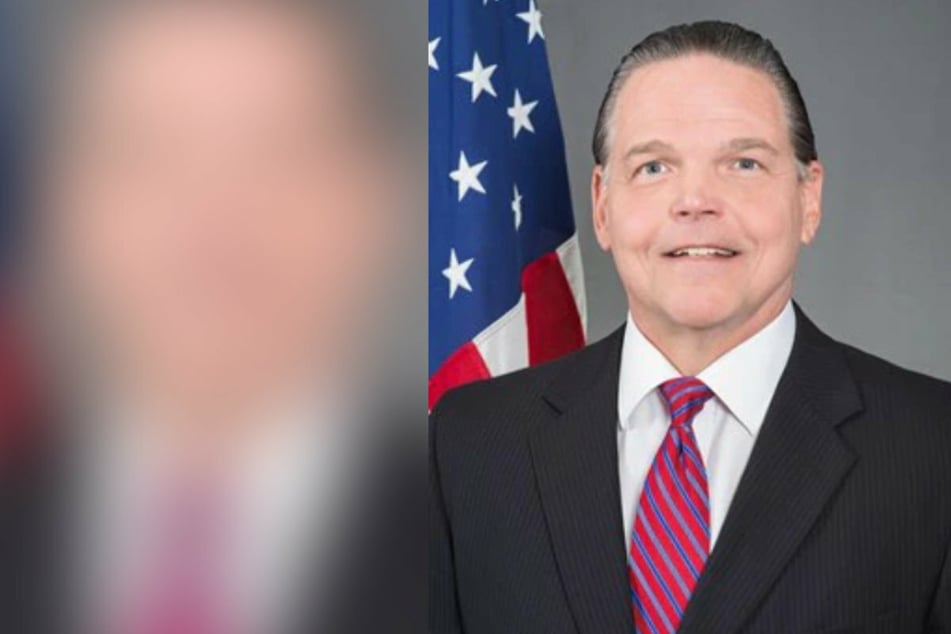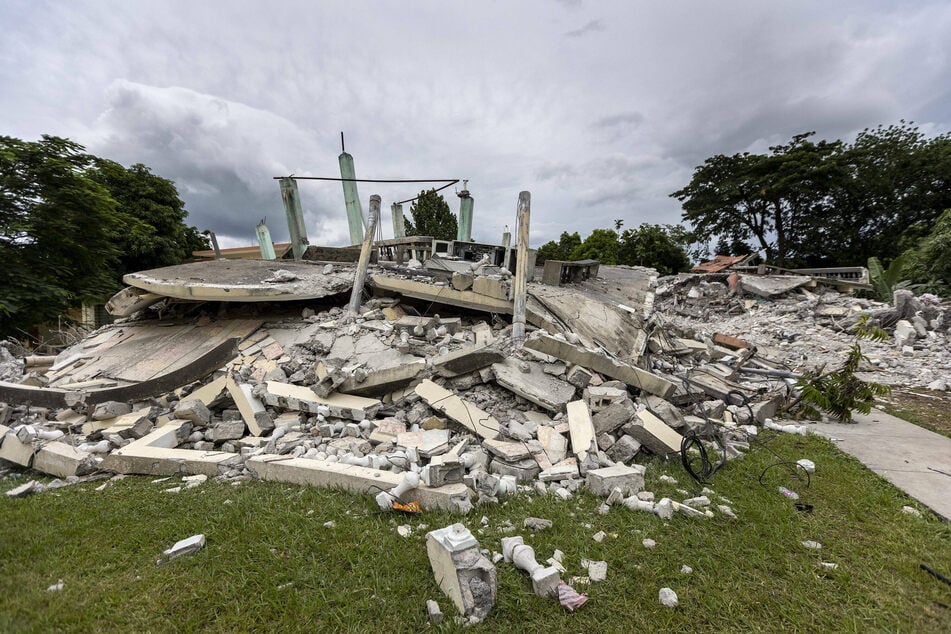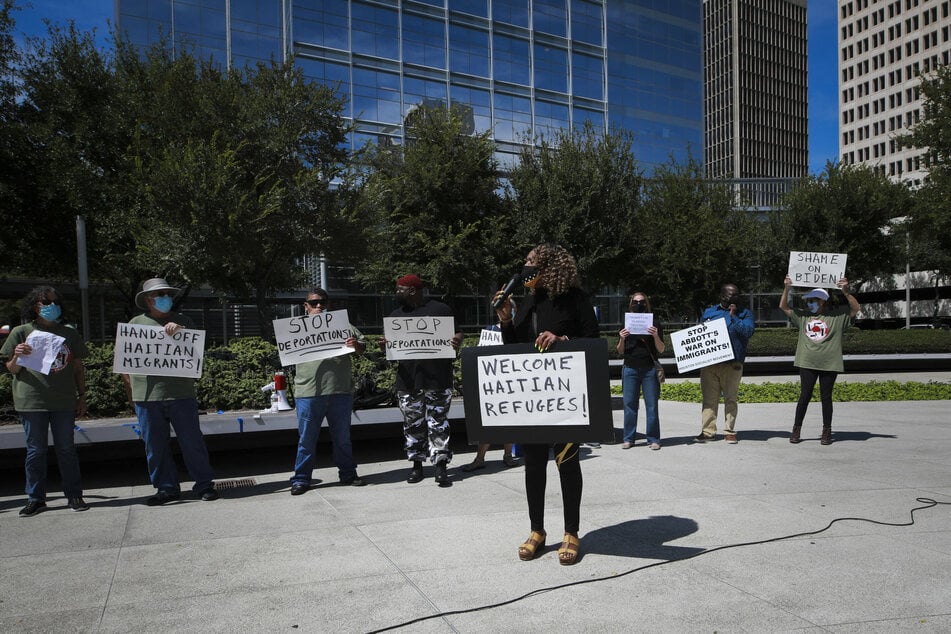US envoy to Haiti trashes "inhumane" and "puppeteering" policies in resignation letter
Port-au-Prince - Harshly criticizing what he called the United States’ "inhumane" treatment of Haitian migrants and its policy toward Haiti, US special envoy to Haiti Daniel Foote has resigned, the US State Department confirmed Thursday.

In a strongly worded resignation letter dated Wednesday, the veteran diplomat criticized the US decision to repatriate thousands of Haitians from the US-Mexico border over the past few days.
"I will not be associated with the United States inhumane, counterproductive decision to deport thousands of Haitian refugees and illegal immigrants to Haiti, a country where American officials are confined to secure compounds because of the dangers posed by armed gangs in control of daily life," Foote said.
He also lashed out at what he called "puppeteering" of Haitian politics by the US and other nations.
"Last week, the US and other embassies in Port-au-Prince issued another public statement of support by for the unelected, de facto Prime Minister Ariel Henry as interim leader of Haiti, and have continued to tout his political agreement over another broader, earlier accord shepherded by civil society," Foote said.
"The hubris that makes us believe we should pick the winner – again – is impressive. This cycle of international political interventions in Haiti has consistently produced catastrophic results. More negative impacts to Haiti will have calamitous consequences not only in Haiti, but in the US and our neighbors in the hemisphere.”
A country in crisis

A senior State Department official commenting on the resignation said Foote "sought a broader mandate and oversight responsibilities, which we did not think was appropriate or prudent at the time. He shortly thereafter submitted his resignation."
Foote, a veteran diplomat who had been deputy assistant secretary of state and was the former US ambassador to Zambia, was appointed special envoy to Haiti in July after the assassination of the country’s president, Jovenel Moise.
His resignation comes as Haiti finds itself wrestling with multiple crises – attacks by armed gangs, political volatility, low Covid-19 vaccination numbers, and a humanitarian crisis in the aftermath of a deadly August earthquake.
There is also the Biden administration’s ongoing return of Haitian migrants from the US-Mexico border and its implication for a country struggling to recover from the 7.2 earthquake along its southern peninsula amid widening insecurity, spiking hunger and social and political tensions.
Since Sunday, 12 repatriation flights have left the United States and 1,401 Haitian nationals have been returned to Haiti. Another 3,206 Haitian nationals have been moved from a camp in Del Rio, Texas, to US Customs and Border Patrol custody or to other sectors of the United States border to either be expelled or placed into removal proceedings.
There are fewer than 5,000 migrants in the Del Rio sector, a Department of Homeland Security spokesperson said.
Deportations spark outrage and concern

The deportations from the camp, which held as many as 15,000 migrants at its peak, have sparked criticism of the Biden administration’s US policy in Haiti, which now includes looking at opening a detention center at Guantanamo Bay.
The outrage further grew after photos and video of border patrol agents on horseback wielding what appeared to be ropes or reins while chasing some of the Haitian migrants.
Shocked by the image, Vice President Kamala Harris described what she saw as "horrible" and acknowledged that more needs to be done to help stabilize Haiti and to understand it.
"Talk about a country that has just experienced so much tragedy that has been about natural disasters, the head of state assassinated, and we really have to do a lot more to recognize that as a member of the Western Hemisphere, we’ve got to support some very basic needs that the people of Haiti have to get back up," said Harris, who is in charge of border issues for the administration.
Most of the migrants arriving in Del Rio were previously living in Brazil, Chile, and other countries in South and Central America. They migrated there after the devastating January 12, 2010 earthquake, after which the US pledged to help Haiti "Build Back Better."
Since then, the conditions in the country have only worsened, something Foote recognized, telling a panel at Florida International University last month that his condition for accepting the special envoy job was that the US would not be repeating the same mistakes in Haiti.
His biggest challenge in Haiti, he said, was "the immediacy of the problem. The fact that any response is going to take some time." He mentioned that he was working closely with the Haiti National Police to train, invigorate and assist in setting up an anti-gang task force, a critical step in "returning the Haitian ground to its people."
"The biggest challenge I’ve seen in response to this earthquake is the security situation; the gangs ability to control areas of Haiti and the main road down to the south," he said.
"The security situation remains a big challenge for reconstruction, for political agreement and to move forward for elections."

Foote did not respond to requests for comment, but his role has not been without challenges, including strained relations with the US embassy in Port-au-Prince. US ambassador Michele Sison has been the target of criticism from members of Haitian society.
Immediately after taking the Haiti job, Foote began talking to leaders across the political spectrum as well as members of civil society, encouraging their push to reach an agreement over a transition government.
Those discussions led the Biden administration to back away from its previous position of having Haiti elections soon, and acknowledged that the conditions in the country are not yet conducive for Haitians to vote.
Cover photo: US Department of State

